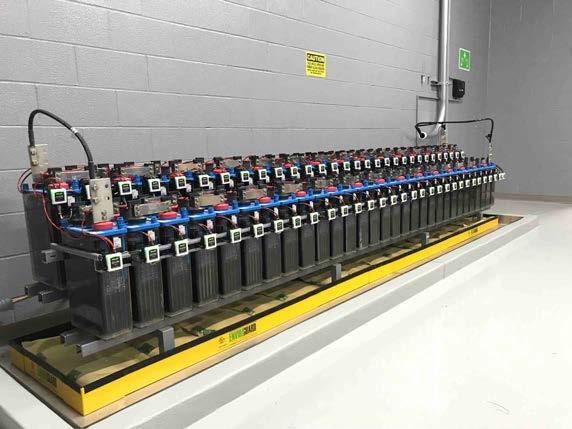SPILL CONTAINMENT Features • • • • • • • • • • • •
UL Listed spill containment system No power tools required for assembly System is lightweight and easy to assemble for a single user Retrofit to existing, pre-installed battery systems PVC components have LOL flame rating of 28 or higher, meets UL Standard 2436 PVC components provide a higher flexibility than steel; components ¼” Thick, 4” Tall PVC as required in National Fire Code Pillows are highly durable, flame retardant material Pillows will absorb and neutralize battery electrolyte Pillows indicate contact with acid by turning from bright yell to bright red 1/16” thick pillow material is tear and puncture resistant Pillow sizes available 12 x12’’ and 6 x 24” for optimal spill coverage
Services & Education • • • • • • • •
Complete EF&I Turnkey Installations Battery Removal IEEE & NERC PM Programs Capacity / Load Testing Battery Room Health Check-Up Customer Stocking Programs Eagle Eye University (EEU)
Applications • • • • • • • • •
Utility Telecom UPS Renewable Energy Data Centers / Cable TV Generating Starting Nuclear General Purpose And More
Eagle Eye Power Solutions (EEPS) provides a full line of SCS-Series Spill Containment Solutions designed specifically for standby power applications. Spill containment is required for lead acid battery systems, enforced by fire regulations on the federal and state level. The SCS-Series utilizes UL recognized, flame retardant pillows which are available in several sizes. The PVC frame components have an LOI flame rating of 28 or higher. All components of the SCS were designed to be installed with new battery systems or retrofitted to existing battery systems. Installation is straightforward and easy for all types of battery systems.
11 15











